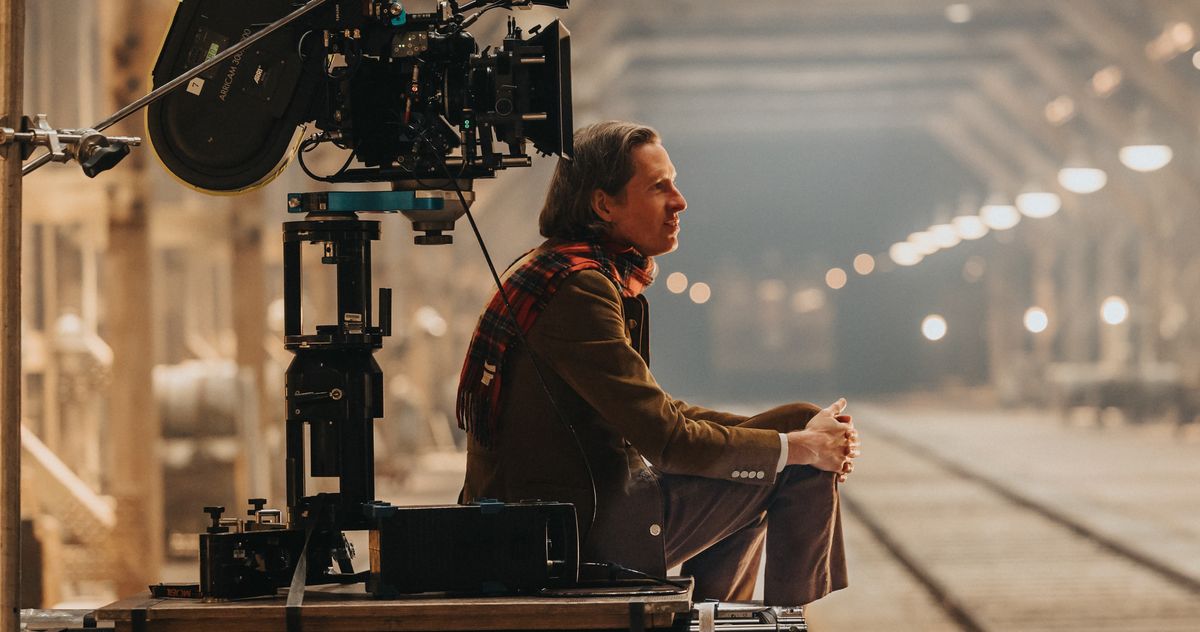Beyond The Visuals: Analyzing The Underlying Darkness In Wes Anderson's Work

Welcome to your ultimate source for breaking news, trending updates, and in-depth stories from around the world. Whether it's politics, technology, entertainment, sports, or lifestyle, we bring you real-time updates that keep you informed and ahead of the curve.
Our team works tirelessly to ensure you never miss a moment. From the latest developments in global events to the most talked-about topics on social media, our news platform is designed to deliver accurate and timely information, all in one place.
Stay in the know and join thousands of readers who trust us for reliable, up-to-date content. Explore our expertly curated articles and dive deeper into the stories that matter to you. Visit Best Website now and be part of the conversation. Don't miss out on the headlines that shape our world!
Table of Contents
Beyond the Visuals: Unpacking the Melancholy Undercurrents in Wes Anderson's Whimsical Worlds
Wes Anderson. The name conjures images of meticulously crafted symmetry, pastel palettes, and quirky characters inhabiting meticulously designed worlds. His films are instantly recognizable, celebrated for their distinctive visual style and deadpan humor. But beneath the surface of this whimsical aesthetic lies a current of profound melancholy, a darkness that resonates deeply with audiences and critics alike. This article delves beyond the charming visuals to explore the underlying themes of loss, isolation, and the search for meaning that permeate Anderson's filmography.
The Allure of the Perfectly Imperfect:
Anderson's films are undeniably beautiful. The symmetry, the color palettes, the meticulously chosen props – all contribute to a captivating visual experience. However, this very perfection often underscores a sense of artificiality, a constructed reality that feels both alluring and unsettling. This crafted perfection, in many ways, acts as a shield against the raw emotions bubbling beneath the surface. Think of the meticulously organized, yet ultimately lonely, existence of Steve Zissou in The Life Aquatic with Steve Zissou or the carefully curated family dysfunction in The Royal Tenenbaums. The beauty masks a deeper sadness, a longing for genuine connection that remains elusive.
Recurring Themes of Loss and Grief:
Loss is a central theme in almost all of Anderson's films. Whether it's the loss of a parent, a sibling, or a dream, the characters grapple with grief in various ways. Moonrise Kingdom, for instance, explores the themes of abandonment and the search for belonging through the eyes of two young runaways. The film's idyllic setting contrasts starkly with the underlying feelings of loneliness and isolation experienced by the characters. Similarly, Fantastic Mr. Fox subtly deals with themes of familial responsibility and the consequences of past actions, highlighting the lasting impact of loss on character development.
The Search for Meaning and Belonging:
Many of Anderson's characters are searching for something – be it a sense of belonging, purpose, or connection. They often find themselves adrift, struggling to find their place in the world. This search for meaning is a recurring motif, creating a sense of underlying yearning and vulnerability that transcends the film's often comedic tone. The characters in The Grand Budapest Hotel, for example, despite their eccentric personalities, are driven by a deep need for loyalty and friendship in the face of impending doom.
Beyond the Nostalgia: A Modern Commentary:
While often described as nostalgic, Anderson’s films are not merely romantic recreations of the past. Instead, they use nostalgic elements to explore contemporary anxieties – the alienation of modern life, the breakdown of traditional family structures, and the pervasive sense of uncertainty that defines the human experience. The meticulously crafted worlds he creates serve as a backdrop for exploring these universal themes, making his work resonate with audiences across generations.
Conclusion: The Enduring Appeal of Anderson's Melancholy:
Wes Anderson's films are more than just visually stunning pieces of cinematic art. They are deeply thoughtful explorations of the human condition, delving into complex emotions often hidden beneath layers of quirky humor and meticulously designed aesthetics. By understanding the underlying darkness in his work, we gain a deeper appreciation for the nuanced storytelling and emotional resonance that define his unique cinematic vision. What are your thoughts on the melancholic undertones in Wes Anderson's films? Share your perspectives in the comments below!

Thank you for visiting our website, your trusted source for the latest updates and in-depth coverage on Beyond The Visuals: Analyzing The Underlying Darkness In Wes Anderson's Work. We're committed to keeping you informed with timely and accurate information to meet your curiosity and needs.
If you have any questions, suggestions, or feedback, we'd love to hear from you. Your insights are valuable to us and help us improve to serve you better. Feel free to reach out through our contact page.
Don't forget to bookmark our website and check back regularly for the latest headlines and trending topics. See you next time, and thank you for being part of our growing community!
Featured Posts
-
 Roster Shakeup Dodgers Call Up Starting Pitcher From Triple A
May 17, 2025
Roster Shakeup Dodgers Call Up Starting Pitcher From Triple A
May 17, 2025 -
 Consumer Warning High Levels Of Arsenic And Cadmium Found In Popular Rice Brands
May 17, 2025
Consumer Warning High Levels Of Arsenic And Cadmium Found In Popular Rice Brands
May 17, 2025 -
 Is Harvards Cheap Magna Carta Copy Actually Authentic
May 17, 2025
Is Harvards Cheap Magna Carta Copy Actually Authentic
May 17, 2025 -
 Severe Structural Issues Alleged Lawsuit Targets New York City Skyscraper
May 17, 2025
Severe Structural Issues Alleged Lawsuit Targets New York City Skyscraper
May 17, 2025 -
 Thousands Of Cracks Reported Condo Owners Sue Over Nyc High Rise Defects
May 17, 2025
Thousands Of Cracks Reported Condo Owners Sue Over Nyc High Rise Defects
May 17, 2025
Latest Posts
-
 How Will The State Farm Emergency Rate Hike Affect My California Insurance
May 17, 2025
How Will The State Farm Emergency Rate Hike Affect My California Insurance
May 17, 2025 -
 Its A Hell Of A Gift Unpacking Benicio Del Toros Scheme
May 17, 2025
Its A Hell Of A Gift Unpacking Benicio Del Toros Scheme
May 17, 2025 -
 Hope And Hesitation Analysis Of The First Russia Ukraine Direct Talks In Years
May 17, 2025
Hope And Hesitation Analysis Of The First Russia Ukraine Direct Talks In Years
May 17, 2025 -
 Police Charge Chris Brown After Alleged London Nightclub Attack
May 17, 2025
Police Charge Chris Brown After Alleged London Nightclub Attack
May 17, 2025 -
 Heated Exchange Aoc Vs Trumps Border Czar Cnn Politics
May 17, 2025
Heated Exchange Aoc Vs Trumps Border Czar Cnn Politics
May 17, 2025
